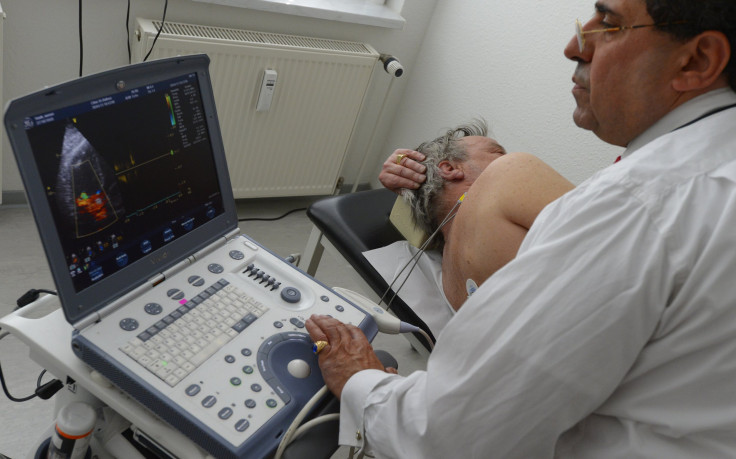Parasitic Worms Inside Man's Bile Duct Removed In Unusual Case
Doctors treating a 68-year-old Thai man were shocked to learn his fever, abdominal pain and jaundice were caused by parasitic worms.
The unidentified man was diagnosed with acute cholangitis, which was caused by the worms. He had reported of abdominal pain for two days, and was also suffering from nausea and vomiting for 12 months. Doctors believed the symptoms were linked to choledocholithiasis or a type of bile duct obstruction caused by gallstones, a case report by the British Medical Journal said.
Doctors performed an ultrasound and found “a tubular-shaped hypoechoic lesion" that was seen filling the common bile duct and one in the left hepatic bile duct. They then conducted an endoscopic retrograde cholangiography to determine the issue in the bile duct.
Researchers wrote in the study the test results revealed there were multiple, cream-coloured roundworms coming out from the ampulla of Vater – formed by the union of the pancreatic duct and the common bile duct – and the second part of the duodenum.
Doctors diagnosed him with acute cholangitis from hepatobiliary ascariasis. According to the National Center for Biotechnology Information, acute cholangitis is a bacterial infection that causes the obstruction of the bile duct. In most cases it is the gallstones blocking the common bile duct. However, in the Thai man's case it was parasitic worms.
Acute cholangitis caused by parasites is “a rare entity” “nowadays,” doctors wrote.
They performed endoscopic removal of the ascaris worms, following which he was given medication to evacuate the rest of the parasites over a 14-day period. A photo shared along with the study shows he had at least five worms.
Following the procedure, the man said he was doing fine and that his fever had gone along with the abdominal pain. It is not clear how the man came to be infected by the parasites.
Ascaris is one of the parasites that can cause biliary obstruction and is also linked to biliary sepsis. The researchers wrote in the study ascariasis is common in both tropical and low-income and middle-income countries. Untreated sewage used as a fertilizer and flowing into rivers and lakes can lead to ascaris. According to the Centers for Disease Control and Prevention, ascariasis is now not common in the United States.






















